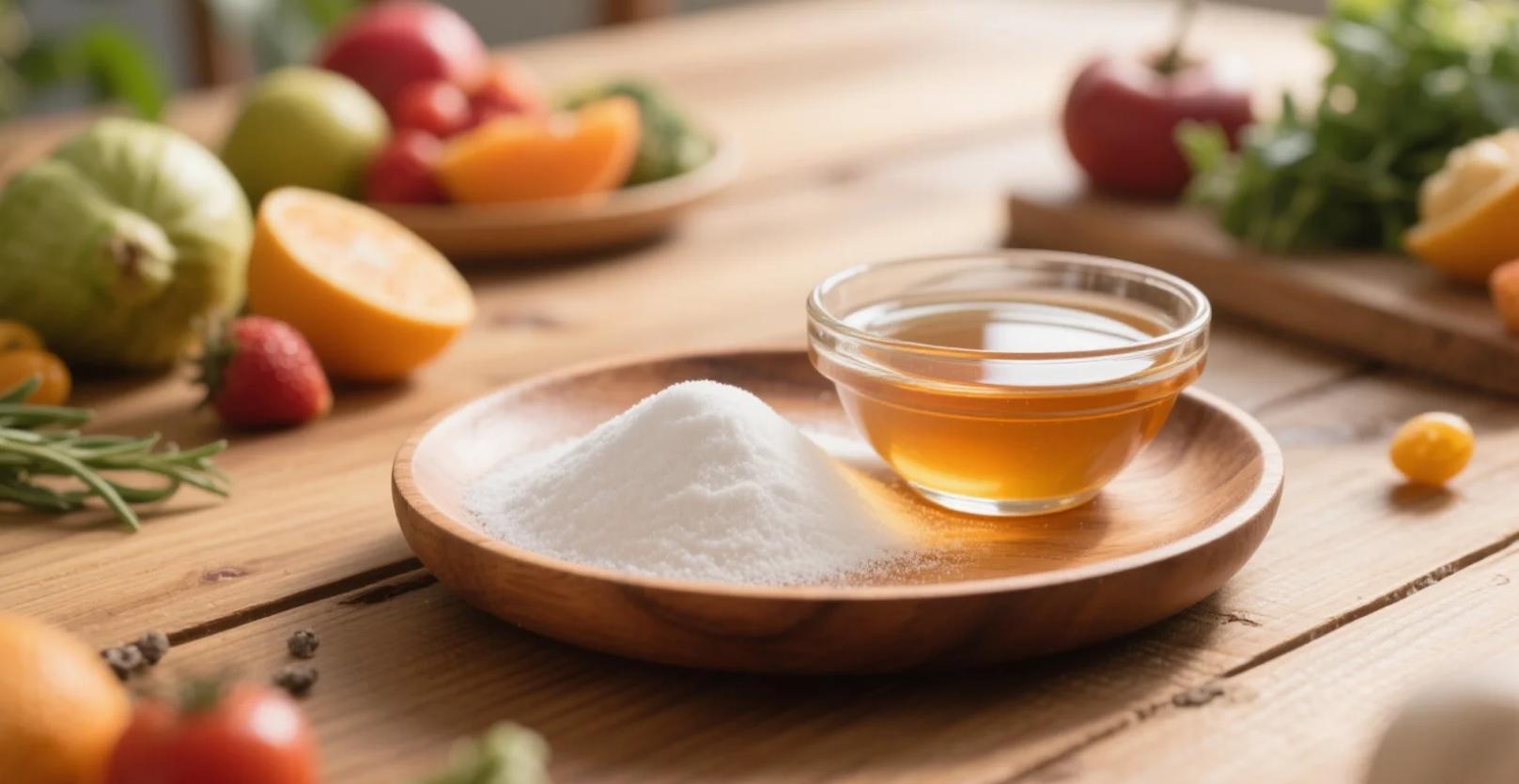Table of Contents
Organic allulose is quickly becoming the darling of the natural sweetener world, and for good reason. This “rare sugar” offers the delicious taste and texture of traditional sugar but with virtually no calories and no impact on blood sugar. Whether you’re a home cook aiming for healthier desserts or a food manufacturer creating clean-label products, understanding how to pick a quality organic allulose is key.
Let’s explore what makes organic allulose so revolutionary and how to make the smartest choice for your culinary creations.
What is Organic Allulose and Why is it Essential?
Allulose is a naturally occurring monosaccharide (simple sugar) found in small amounts in fruits like figs, raisins, and wheat. What sets it apart from other sweeteners is how your body processes it:
- Virtually Zero Calories: Allulose provides only about 0.4 calories per gram, roughly one-tenth the calories of regular sugar. This makes it an invaluable tool for calorie reduction and weight management.
- No Impact on Blood Sugar: Unlike common sugars, allulose is absorbed by the body but not metabolized for energy. It doesn’t raise blood glucose or insulin levels, making it ideal for individuals managing diabetes, following ketogenic diets, or anyone aiming for stable energy.
- Tastes Like Sugar, Without the Aftertaste: One of allulose’s biggest advantages is its clean, sweet taste, remarkably similar to sugar. It lacks the cooling sensation of some sugar alcohols or the lingering aftertaste often associated with high-intensity sweeteners.
- Functional Benefits Beyond Sweetness: Allulose contributes to desirable browning (Maillard reaction) in baked goods, and provides body and texture in liquids and frozen desserts – properties often missing in other zero-calorie sweeteners.
Choosing organic allulose is paramount for purity and peace of mind. Organic certification guarantees the base material is cultivated without synthetic pesticides, herbicides, or GMOs, and that the processing adheres to environmentally friendly practices. This ensures a cleaner, purer product for you.
Understanding Your Options: Powder vs. Syrup
Both forms of organic allulose deliver these incredible benefits, catering to different preferences and applications.
- Organic Allulose Powder:
- Ideal For: Dry mixes, protein powders, baking, and applications where precise dry measurement is preferred. It excels in recipes that require volume and structure similar to sugar.
- Benefits: Dissolves readily in liquids, making it perfect for powdered beverages. It contributes to excellent bulk and texture in baked goods and mixes, behaving much like sugar in terms of volume.
- What to Look For: A fine, free-flowing white powder. Purity in ingredients (100% organic allulose).
- Organic Allulose Syrup:
- Ideal For: Beverages, sauces, glazes, dressings, frozen desserts, and applications where a liquid sweetener is preferred for ease of mixing and moisture retention.
- Benefits: Provides smooth integration into liquid formulations. It helps lower the freezing point in ice creams and sorbets, resulting in a creamier, scoopable texture, and aids in moisture retention for softer baked goods.
- What to Look For: A clear, viscous liquid. Purity in ingredients (100% organic allulose syrup, or organic allulose with purified water).
Your Smart Shopping Checklist: What to Look For
When you’re ready to source your organic allulose, keep these crucial factors in mind:
- Always Verify “Organic” Certification. This is your primary guarantee of quality and purity. It confirms the product meets stringent organic standards from farm to finished product. Look for clearly displayed organic certification logos (like USDA Organic, EU Organic, or JAS if applicable) on the packaging.
- Examine the Ingredients List: Purity is Paramount. High-quality organic allulose should be just that – pure allulose. Avoid products with unnecessary fillers, artificial flavors, colors, or excessive sweeteners. For organic allulose powder, the list should simply state “organic allulose.” For organic allulose syrup, it should be “organic allulose syrup” or “organic allulose, water.”
- Assess Color and Aroma. These are indicators of freshness and quality.
- For Organic Allulose Powder: It should be a fine, pure white powder.
- For Organic Allulose Syrup: It should be a clear, colorless liquid.
- For Both: There should be little to no discernible odor, or a very mild, clean sweet scent. Avoid any off-colors or strong, unpleasant smells.
- Consider Taste and Texture (if possible). While allulose generally has a clean taste, slight variations can exist. Look for reviews that confirm a clean taste with no aftertaste. The powder should be fine and mix easily, and the syrup should have a smooth, consistent viscosity.
- Review Packaging and Storage Instructions. Proper packaging is essential for maintaining quality.
- For Powder: Look for airtight, moisture-resistant, and resealable packaging. Store it in a cool, dry place away from humidity to prevent caking.
- For Syrup: Look for a well-sealed container. Store as directed; some may benefit from refrigeration after opening. Always check the expiration or “best by” date.
Organic allulose is more than just a sweet solution; it’s a testament to how natural innovation can bridge the gap between delicious taste and unwavering health goals. For anyone seeking to reduce sugar intake without compromise, it offers a revolutionary path to a healthier, sweeter life.
How will organic allulose transform your approach to sweetness today?
Related Products
Organic Allulose Sweetener
Source premium Organic Allulose Powder and Syrup. A clean-label, low-calorie, non-glycemic rare…
